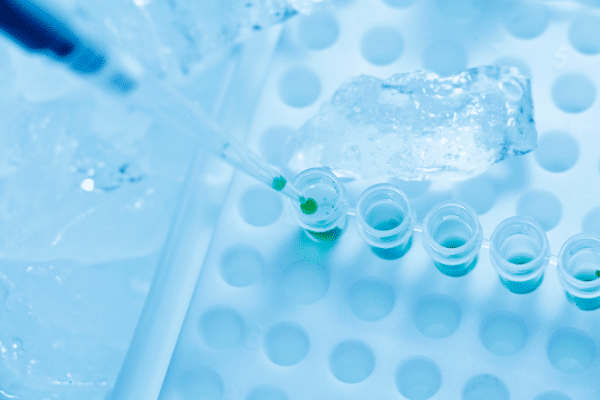Molecular biology is the branch of biology that studies the molecular basis of biological activity and plays a vital role in a multitude of industrial, medical and energy applications in full development. In this article we explain what molecular biology is and how it is useful.
What is molecular biology?
Molecular biology is the study of the structure, function and composition of the molecular components of life. It is a discipline closely related to the fields of biochemistry, genetics and cell biology that focuses on the interactions between the various systems of a cell, the interrelationship of DNA, RNA and protein synthesis, and how they regulate each other.
Although there are many types of molecules in every living being, molecular biology studies generally focus on genes and proteins. The reason is that proteins perform a huge diversity of functions in living cells, and genes contain the information needed to make more proteins.
Molecular biologists are responsible for conducting experiments that focus on investigating the structure, function, processing, regulation and evolution of biological molecules and their interactions. This allows them to understand the workings of life at the micro level and how the structure of a molecule, including details such as the location and shape of a protein’s active sites, affect its function.
Gathering this information not only provides basic knowledge about how biology works, but also provides the knowledge needed to manipulate genetic biology, which is fundamental to drug design and genetic engineering.
Genetic engineering techniques make it possible to study living beings, making it possible to manipulate genes to achieve greater agricultural productivity, develop new materials, improve the food industry, characterize materials and perform forensic engineering analyses. For example, to analyze corrosion and stains on stainless steel, as well as to develop new energies and open up an enormous field of research in genetics and medicine.
Molecular biology disciplines
Advances in molecular biology technology and genetic engineering, as well as microbial genetic manipulations have promoted the application of microorganisms in research and the birth of some of the subdisciplines that are part of molecular biology such as the following:
- Comparative genomics, i.e., the study of human genetics through comparisons with model organisms such as mice or fruit flies.
- Forensic DNA analysis
- Functional genomics, which is the study of genes, proteins and the role they play in the biochemical processes of the organism.
- Gene therapy, an experimental procedure aimed at replacing, manipulating or supplementing non-functioning genes.
- Molecular genetics, the study of macromolecules.
- Pharmacogenomics, the interaction between an individual’s genetic makeup and his or her response to a drug.
- Proteomics, the study of the set of proteins encoded by a genome.
- Structural genomics, which attempts to determine the three-dimensional structures of a large number of proteins by means of experimental and computer simulation techniques.
- Toxicogenomics, the study of how genomes respond to toxicants.

Applications of molecular biology
Molecular biology technology has not only broadened the horizon, but also increased the depth of research in microbial ecology applied to the materials industry, development of new energy sources, characterization of antibiofilm properties for prevention on surfaces, modification of composites, forensic engineering, improvement of the food and energy industry.
The growing amount of genomic data from microbes offers new opportunities to understand the genetic and molecular basis of the degradation genes of various bacteria that affect products, foods and materials.
Similarly, genetic engineering is an essential technique for building microbes with enhanced biodegradability that can be used to control polluted environments or to ferment waste in ways that produce natural gas.
On the other hand, the key technological areas of biological transformation will be bioengineering, information and machine engineering, which will lead the way for biological transformation. In this context, neurorobotics can make a significant contribution to improving the current state of the art by linking human nerve cells with technical components. Its application in human-machine interfaces are increasingly relevant both in medicine, think of prosthetics, virtual reality and in future manufacturing and mechanization environments. In the same way, compostable electronic components will also be essential for biological transformation, e.g. semiconductors made from plant extracts or gelatin insulators can be printed on biodegradable circuit boards (e.g. bioplastics) with additive processes. In fact, the latest research reveals technological breakthroughs in 3D printing with biomaterials.
Ultimately, molecular biology applications are expected to be a mainstay in the manufacture of chemicals, energy, medical, consumer products, agriculture and food, industry, cosmetics and environmental technologies.
Molecular biology will generate new manufacturing capabilities for synthetic biology-based products that will bring major benefits. In addition, new advances in measurement tools, computer-aided design, and strategic design and prototyping cycles applied to biomaterials engineering create new bioeconomy markets, which will benefit the environment and offer great investment opportunities.
At Infinitia we are committed to the latest technology development to offer you the best solution. Contact us and tell us about your case.





